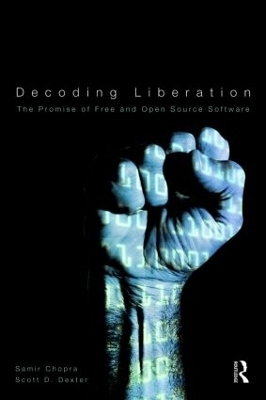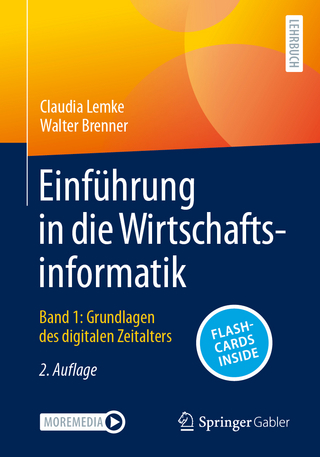
Decoding Liberation
The Promise of Free and Open Source Software
Seiten
2009
Routledge (Verlag)
978-0-415-87678-0 (ISBN)
Routledge (Verlag)
978-0-415-87678-0 (ISBN)
This book explores the relationship between the free software movement and freedom. Focusing on five main themes—the emancipatory potential of technology, social liberties, the facilitation of creativity, the objectivity of computing as a scientific practice, and the role of software in a cyborg world—the authors ask, what are the freedoms of free software, and how are they manifested?
Choice Outstanding Academic Title
Software is more than a set of instructions for computers: it enables (and disables) political imperatives and policies. Nowhere is the potential for radical social and political change more apparent than in the practice and movement known as "free software." Free software makes the knowledge and innovation of its creators publicly available. This liberation of code—celebrated in free software’s explicatory slogan "Think free speech, not free beer"—is the foundation, for example, of the Linux phenomenon.
Decoding Liberation provides a synoptic perspective on the relationships between free software and freedom. Focusing on five main themes—the emancipatory potential of technology, social liberties, the facilitation of creativity, the objectivity of computing as scientific practice, and the role of software in a cyborg world—the authors ask: What are the freedoms of free software, and how are they manifested? This book is essential reading for anyone interested in understanding how free software promises to transform not only technology but society as well.
Choice Outstanding Academic Title
Software is more than a set of instructions for computers: it enables (and disables) political imperatives and policies. Nowhere is the potential for radical social and political change more apparent than in the practice and movement known as "free software." Free software makes the knowledge and innovation of its creators publicly available. This liberation of code—celebrated in free software’s explicatory slogan "Think free speech, not free beer"—is the foundation, for example, of the Linux phenomenon.
Decoding Liberation provides a synoptic perspective on the relationships between free software and freedom. Focusing on five main themes—the emancipatory potential of technology, social liberties, the facilitation of creativity, the objectivity of computing as scientific practice, and the role of software in a cyborg world—the authors ask: What are the freedoms of free software, and how are they manifested? This book is essential reading for anyone interested in understanding how free software promises to transform not only technology but society as well.
Samir Chopra is Associate Professor of Computer and Information Science at Brooklyn College of the City University of New York. Scott Dexter is an Associate Professor of Computer and Information Science at Brooklyn College of the City University of New York.
Contents Introduction 1. Free Software and Political Economy 2. The Ethics of Free Software 3. Free Software and the Aesthetics of Code 4. Free Software and the Scientific Practice of Computer Science 5. Free Software and the Political Philosophy of the Cyborg World Bibliography
| Reihe/Serie | Routledge Studies in New Media and Cyberculture |
|---|---|
| Verlagsort | London |
| Sprache | englisch |
| Maße | 152 x 229 mm |
| Gewicht | 317 g |
| Themenwelt | Geisteswissenschaften ► Geschichte |
| Informatik ► Office Programme ► Outlook | |
| Mathematik / Informatik ► Informatik ► Theorie / Studium | |
| Sozialwissenschaften ► Kommunikation / Medien ► Medienwissenschaft | |
| ISBN-10 | 0-415-87678-8 / 0415876788 |
| ISBN-13 | 978-0-415-87678-0 / 9780415876780 |
| Zustand | Neuware |
| Haben Sie eine Frage zum Produkt? |
Mehr entdecken
aus dem Bereich
aus dem Bereich
Buch | Softcover (2022)
Markt + Technik Verlag
CHF 20,90
Band 1: Grundlagen des digitalen Zeitalters
Buch | Softcover (2024)
Springer Gabler (Verlag)
CHF 69,95


